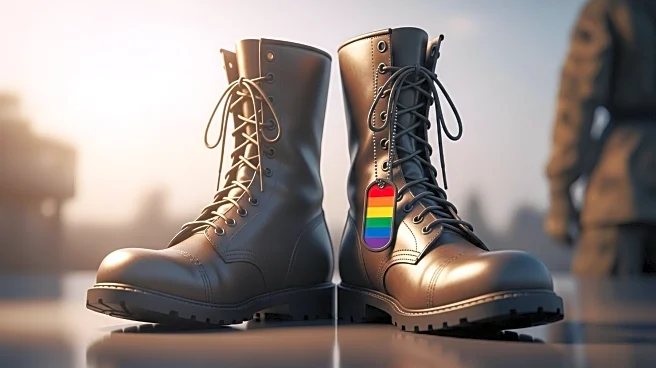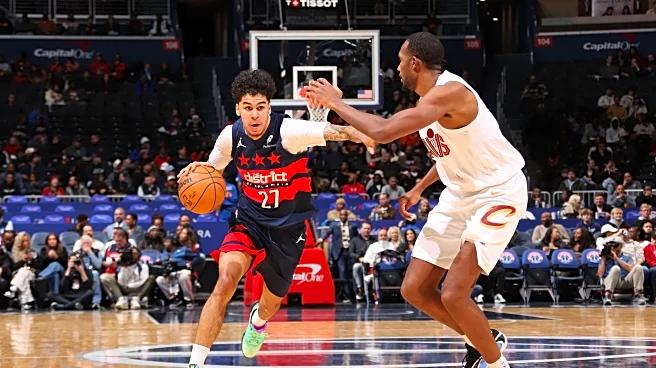What's Happening?
Netflix is set to release a new series titled 'Boots,' a comedic drama inspired by the memoir 'The Pink Marine' by former US Marine Greg Cope White. The show, produced by Sony Pictures Television, is set in the 1990s US Marine Corps, a time when being gay in the military was illegal. It follows the story of Cameron Cope, played by Miles Heizer, and his best friend Ray McAffey, portrayed by Liam Oh, as they navigate boot camp alongside a diverse group of recruits. The series aims to explore themes of friendship, resilience, and self-discovery in a challenging environment. 'Boots' will premiere on Netflix on October 9, 2025, featuring eight one-hour-long episodes.
Why It's Important?
The release of 'Boots' is significant as it contributes to the growing representation of LGBTQ narratives in mainstream media. By focusing on the experiences of gay individuals in the military during a time when their identity was not accepted, the series provides a historical perspective that can foster understanding and empathy. This aligns with broader societal shifts towards inclusivity and diversity, potentially influencing public perceptions and policies related to LGBTQ rights. The show also highlights the importance of storytelling in addressing past injustices and promoting social change.
What's Next?
As 'Boots' premieres, it is likely to spark discussions about LGBTQ representation in media and the historical context of being gay in the military. The series may prompt viewers to reflect on the progress made since the 1990s and the challenges that remain. Stakeholders such as LGBTQ advocacy groups, media critics, and viewers may engage in conversations about the portrayal of LGBTQ characters and the impact of such narratives on societal attitudes. Netflix's continued investment in diverse storytelling could lead to more projects that explore similar themes.
Beyond the Headlines
The series 'Boots' not only entertains but also serves as a cultural artifact that documents a pivotal era in LGBTQ history. It raises ethical questions about the treatment of LGBTQ individuals in the military and the broader implications of exclusionary policies. By bringing these stories to light, the show contributes to ongoing dialogues about equality, acceptance, and the role of media in shaping cultural norms. The long-term impact of such narratives may influence future media productions and societal attitudes towards marginalized communities.











